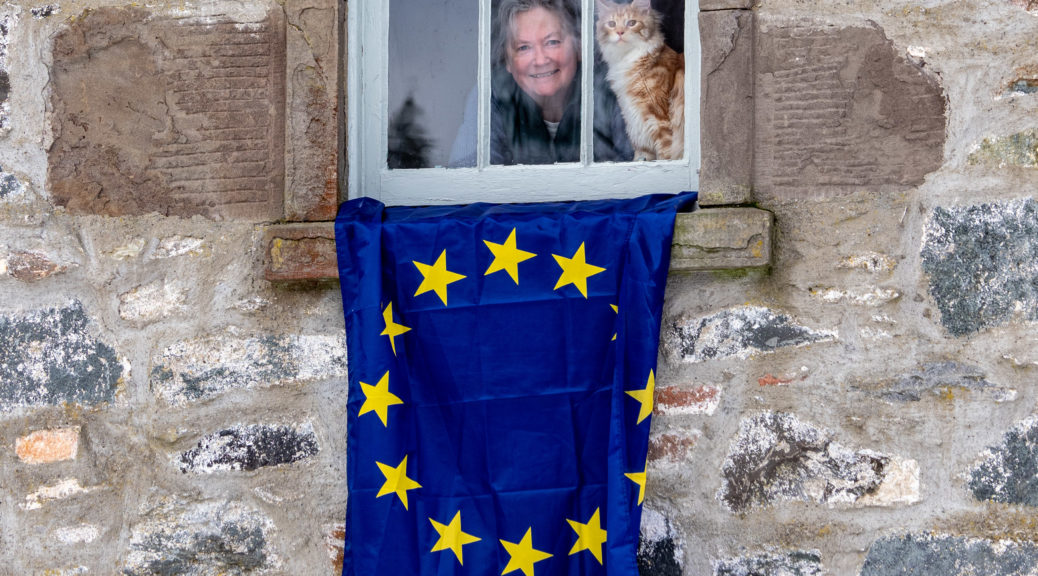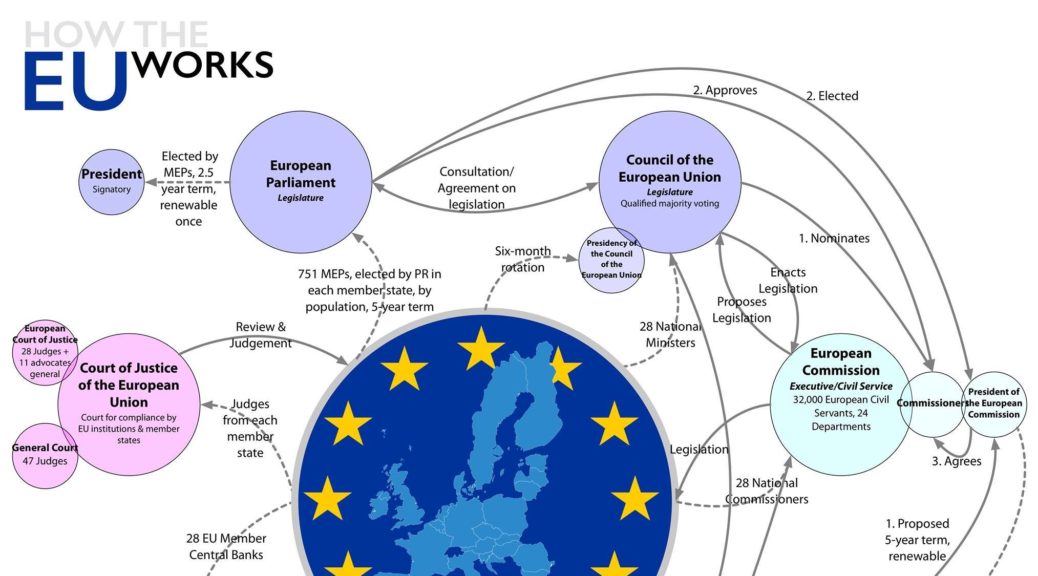I’ve lived more than six decades cheerfully identifying as English (where I was born), Scottish (where I was brought up and where I now live), British (when I couldn’t make up my mind), European (where I’ve spent a deal of my working life and where my greatest cultural resonance lies) and Human, in all other circumstances. And, for the most part, that hasn’t mattered a damn. My passport says I’m a British citizen and – again, mostly – that’s been fine, despite significant differences of outlook with most governments of my lifetime. Continue reading The Sound of Crowing in the Dark
Tag Archives: EU
Tactical Scotland
[Update]: According to the latest YouGov poll, the swing to the pro-EU parties from the Con/Lab relics has been even bigger than I’d allowed for in this analysis. So head here for the latest pro-EU Scottish tactical voting recommendations. My previous recommendation was to swing to the SNP, but the figures now suggest that LibDem voters should stay where they are, and that any new swing voters should head for the Scottish Greens or indeed the SNP.
Voting based on the YouGov/TheTimes poll from the end of April would translate to 3 seats to pro-EU parties, 2 for pro-Brexit/anti-EU parties (1 Brexit and 1 Conservative) and 1 for Labour (whatever they are) – the d’Hondt model used in Great Britain is pretty robust in that regard, favouring smaller parties as the count progresses.
A tactical voting model that favoured the SNP at the expense of the Lib Dems and Change UK and the Brexit party at the expense of the Tories and (to a lesser extent) Labour, would give the Scottish MEP list 4 SNP seats, 1 Labour and 1 Brexit, a majority of 3 or 4 for pro-EU candidates, depending on whether Scottish Labour was neutral or pro-EU.
A tactical voting model that favoured the smaller parties (some Conservative and Labour to Brexit and Remain vote from Conservative, Labour and SNP to the LibDems, Scottish Greens and Change UK) would also give four seats to pro-EU parties (two SNP, one Green, one Lib Dem) but would lose Labour its seat, give the Conservatives one and make no difference to the one seat that the Brexit Party would have, thereby reducing the Pro EU majority on the list from 3 or 4 to 2.
There’s been much speculation about the pro-EU parties combining their lists (I think it’s too late for that now). However, changes to the list where the smaller parties came together to combine their lists (LibDem + Change UK, LibDem + Change UK + Scottish Green, then Brexit and UKIP combining votes) actually makes no difference to the overall outcome in terms of Pro/Anti-EU representation. What it would do is gain the centrist alliance a seat at the expense of the SNP.
An alliance of Change UK and the LibDems, using the YouGov figures, would likely achieve no net change: they’d gain a seat at the expense of the Greens.
However, the Scottish Greens on their own have at least a chance of a seat on their own (but only within a 5% sensitivity analysis), so their incentive for cooperation is perhaps limited. As a still largely issue-driven party, their vote is probably also less susceptible to tactical defection.
Now for the detail… Continue reading Tactical Scotland
Animal Farm, 2019
As predicted, May’s Pig is still resolutely a pig: all that’s changed is that it’s become even stickier from the frantic application of multiple layers of lipstick. Having been unceremoniously tipped out of its poke, the true horror of its oxymoronic insanity is evident to all, no matter which part of the midden they occupy in the Brexit Civil War.
So, in the absence a dereliction of common sense that’s exceptional, even by current standards (which is to say, it’s possible), May’s deal is going down – and by the full bacon sandwich. Update: it did, by 149 votes. Next… Continue reading Animal Farm, 2019
Democratic Clarity
For nearly three years now, I’ve been trying to engage some of my fellow Britons in meaningful debate, initially about why they’d plan to vote to leave the EU and then about why they voted to leave.
It’s been very depressing – all I’ve found is delusion, denial and the repetition of Daily Mail level mantras such as, “Were taking back control” (they tend not to do apostrophes) or, “We need to get out from under the unelected EU superstate/dictatorship“. Which is a bit rich coming from citizens of a country that, for nearly half a century, has been one of the key players in formulating the structures, processes and decisions of the EEC, the EC and now the EU. Continue reading Democratic Clarity
Deflecting Blame: Britain, Bureaucracy & the EU
So much of the agitation for a Leave vote in June seems to be in the fond (as in, “absurd, foolish“) belief by some that a Brexit would return us to a mythic age of independence and freedom from bureaucracy. Well, here’s some news for them: they simply don’t understand either the modern world or the very British ability to bureaucratise a good idea into something completely untenable and then blame it on someone else. Here, the EU is an appartchik’s godsend: the ability to create pointless process that does nothing but perpetuate the salaries of those involved and then be able to duck responsibility by saying, “It’s the EU’s fault“. No, in this case it isn’t and we really need to remind ourselves that there’s a tolerable correlation between those parts of the world known for overweening bureaucracy and those bits of it that used to be coloured pink. Continue reading Deflecting Blame: Britain, Bureaucracy & the EU


